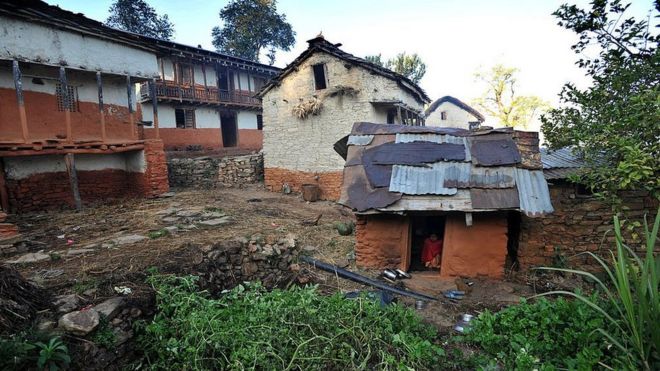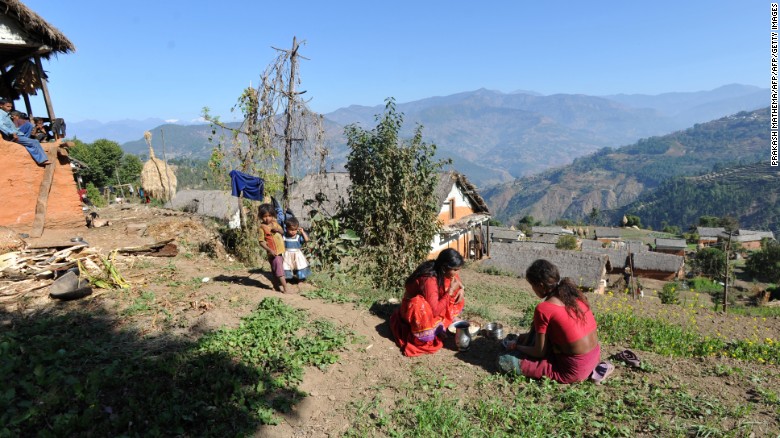The Human Toll of Traditional Religious Chauvinism
"This is what makes me upset. Even people who consider themselves very sophisticated, very educated, very cultured, they are still doing this."
"What this is, is segregation. And we as a society don't talk enough about it. We don't talk about dignity, we don't talk about women's rights."
Radha Paudel, social activist, Nepal
 |
Gauri Kumari Bayak, 22 years of age, was a woman determined to be of social use to her community. She was a woman with a social conscience who also had ambitions of her own. One of them was to complete her high school education. And she also took to earning her own money by sewing dresses for people who could pay for the service. She attended school during the day and in her spare hours taught illiterate women to read. In the evening she did her sewing.
And now, thanks to a tradition in Nepal where menstruating women are accustomed to sequestering themselves away from others until such time as they were no longer 'unclean', she is no longer around to teach women to read, to sew dresses on contract, much less to complete her aspirational challenge of obtaining her high school matriculation before moving on to other things in her life. She died on January 8 of asphyxiation.
She had built a small fire inside an isolated hut on a cold night, to keep warm. She was in that hut where she gathered firewood nearby because she was impure as a menstruating woman, and was prepared to spend the night in a cold hut. Ms. Bayak is not alone in her victimization by a tradition that rural Nepalese honour. Dozens of women and girls in recent years have met their death upholding this tradition.
There are campaigns to end the practise and the Nepalese government itself has legislated against the tradition. Still, menstruating women prepare to bed down at night outside the family home for fear of offending tradition. They go into grass-roofed huts, or rough stables to sleep with cows or goats. Many of these women have been raped by intruders and some of them die from exposure to the cold.
The tradition was given illegal status last summer when the Nepalese government legislated against anyone forcing a women or girl to leave her home lest it be polluted by her menstruating presence. But the threat of violators being subject to imprisonment or fines does not appear to have made inroads into a tradition that people have been long accustomed to honouring when it comes into effect in August.
In Ms. Bayak's instance, poverty and ignorance could not be blamed since she and others of her family were relatively educated by standards of one of the poorest countries in Asia. Her Hindu religion, strictly enforced particularly in rural areas, must take most of the blame for influencing believers that women are unclean during the periods of their menstruation activity lest they infect others.
 |
| In some parts of Nepal, women sleep in huts like these during their periods AFP |
Menstruating women were held to be toxic, that their presence could pollute a temple, that in handling the family food everyone would become ill, and if they touched a tree it would never again bear fruit. The young woman aspired to become a tailor in Kathmandu. Her village in western Nepal where she lived with her husband's show-owning family, would have expected her to honour ancient tradition. She herself insisted it was her duty to do so.
Her husband, a police officer working in Kathmandu, the nation's capital, now grieves her absence. He had never insisted that his wife follow the chhaupadi tradition, he said. But she was herself faithful to it, in a geography where the temperature drops almost to freezing as it did the night she died. The shed she sought shelter in, according to police accounts, had no windows. Police found fresh embers near her body where she had built a small fire.
It isn't just the environmental elements but the biological hazards as well that can threaten women who follow tradition. Last summer while honouring the chhaupadi ritual of ancient Hinduism, another young woman who banished herself to a small hut died after she was bitten by a poisonous snake.
 |
| Women in Nepal face systemic discrimination across a host of issues. CNN |
Labels: Controversy, Female Subjugation, Nepal, Tradition

0 Comments:
Post a Comment
<< Home